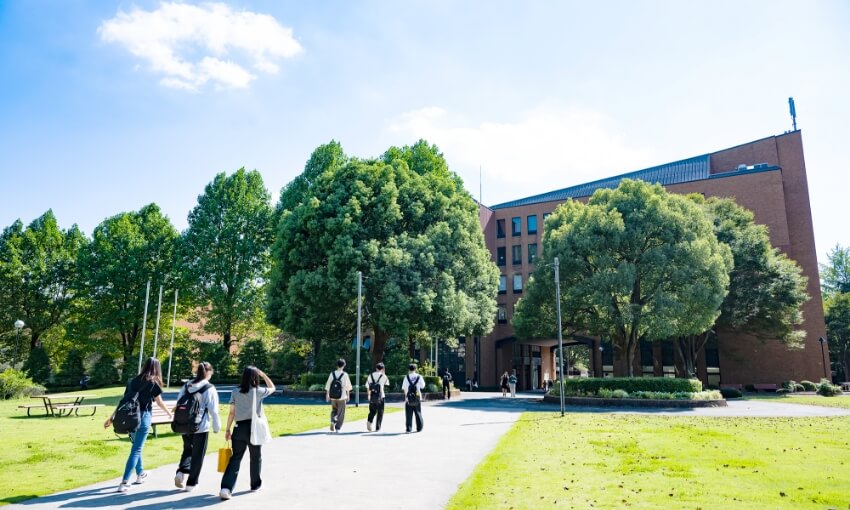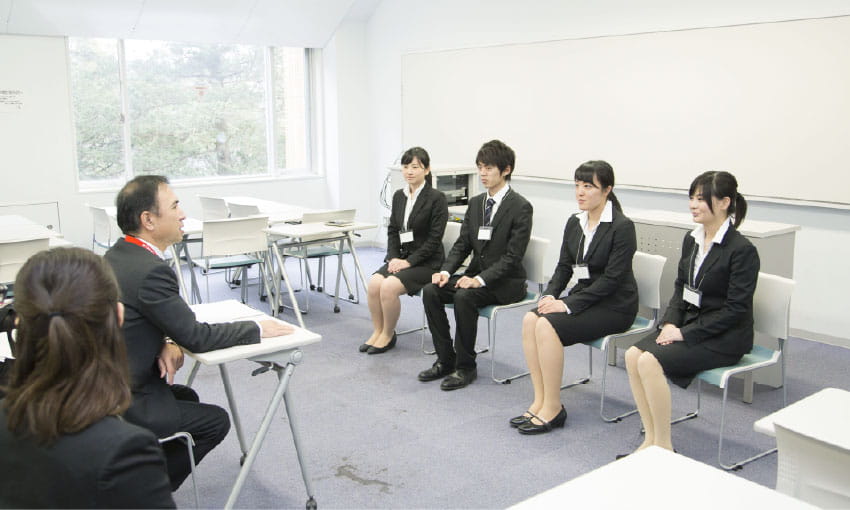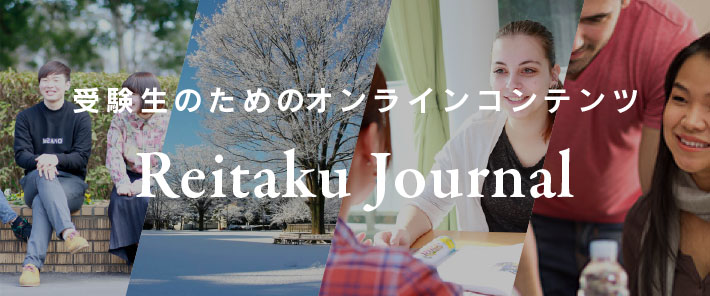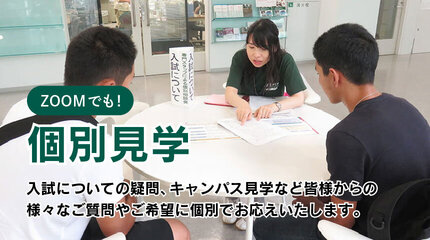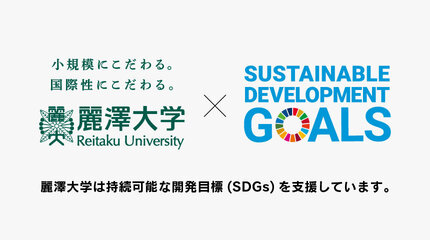You can view campus information in the form of data.
About the UniversityUniversity Policy
Three Policies
Diploma Policy
The mission of our university is to "provide an education based on the highest principles of morality universal to all humankind, and to nurture unity of knowledge and virtue individuals who are both intellectually and morally competent and have a thorough understanding of modern science and knowledge based on that spirit."
Based on this mission, our educational goal is to cultivate the following types of people:
① A person who seeks the truth with great ambition and who possesses high character and profound wisdom.
② People who are grateful for the blessings of nature and our ancestors, and who have a heart that cherishes and nurtures all things.
③ People who can proactively fulfill their duties and responsibilities and contribute to the international community.
If we rephrase these qualities of a person as "academic ability," they can be expressed as follows:
① The ability to see things fairly
② The power of connection
③ Ability to execute
At our university, students who possess these three basic abilities will be certified to graduate and awarded a degree.
Curriculum composition and implementation policy:
Our university fosters the "ability to continue learning throughout one's life" in order to survive in a rapidly changing society. To this end, we have established the "Reitaku Standard Subjects" as a university-wide foundational education, with four pillars: global education to learn languages and the world, moral education based on the founding principles, data science education to learn about the use of data and The Reitaku Standard, and career education to learn the skills and attitudes necessary for social independence. Through learning that transcends and integrates the humanities and sciences, students will acquire the knowledge and understanding, general skills, attitudes and orientations, integrated learning experiences, and creative thinking skills that will serve as the foundation for learning specialized education, while proactively engaging with academic subjects.
In addition, students at our university are expected to develop the three abilities set out in our graduation certification and degree awarding policy in their respective fields: the ability to see things impartially, the ability to connect, and the ability to take action.
1. The ability to see things fairly
・Acquire a broad education and learn diverse perspectives
・Understand analytical methods and at the same time learn their limitations
・Learn why freedom comes with responsibility
- Learn the details of the parts and the need to place the parts within the whole
2. The power of connection
・Learn the importance of being grateful for the benefits of society and passing on good traditions
・Learn concrete methods to achieve sustainability of the earth and nature
- Promote ethical awareness and learn about the weight of responsibility towards society and future generations
- Learn that new wisdom comes from empathizing with and understanding others
3. Ability to execute
・Learn the significance and necessity of taking the initiative for the sake of others and society
・Learn concrete methods and skills to realize ideals in society
・Leadership skills through group work etc.
・Learning the wisdom of listening to different ideas and opinions and sublimating the original ideals
Admissions Policy:
Faculty Educational Policy
Internal Quality Assurance Policy
We provide a PDF file explaining Reitaku University 's internal quality assurance policy.
Basic principles and policies for campus environmental conservation and development
This PDF file provides the basic principles and policies for campus environmental conservation and maintenance.
School Regulations
The Reitaku University academic regulations are provided in PDF format.
Strict implementation of grading
Grade evaluation method using GPA
1What is GPA?
GPA (Grade Point Average) is an evaluation method that determines a student's average grade point average calculated based on the grades in each subject.
Because it can be easily used as a common measure regardless of school or country, it is commonly used in universities and high schools in Europe and the United States, and serves as an indicator of academic ability when studying abroad, etc. At our university, it is used as a grade evaluation indicator and for deciding whether or not to accept scholarships, tuition fee reductions, etc.
The calculation method has been revised from fiscal year 2024.
2Overview
Subjects
Excluded subjects
Cancellation of course registration
Course abandonment
About retaking a course
Check your GPA
Transcript Description
3How to Calculate GPA
A rating of S (100-90) is converted to a GP of 4.0 points, a rating of A (89-80) to a GP of 3.0 points, a rating of B (79-70) to a GP of 2.0 points, and a rating of C (69-60) to a GP of 1.0 points.
Faculty of Foreign Studies Basic Standards for Language Proficiency
English and Communication Studies / English and Liberal Arts
By the time of graduation, English and Communication Studies aim to achieve a TOEIC® score of 700 or above, and English and Liberal Arts aim to achieve a TOEIC® score of 650 or above. To achieve this, there is a requirement to take Analytical Reading B (for students enrolling in 2020 and after), which will be offered in the second semester of the third year, and English and Communication Studies will need to achieve a TOEIC® score of 550 or above, and English and Liberal Arts will need to achieve a TOEIC® score of 500 or above.
German Language and Culture / German Language and Europe / German Language and European Culture
The course aims to acquire German language proficiency at the B1 level of the Common European Framework of Reference for Languages (CEFR).
Chinese major/ Chinese and Global Communication
Students aim to obtain "New HSK Level 5 (score 240 or more)". We encourage students to take the test before or after studying abroad, and there is a system to support the cost of taking the New HSK in groups. In addition, if students are unable to pass "New HSK Level 5 (score 210 or more)" by the end of the third year, they will be required to take "Chinese Advanced Seminar III and IV" (mandatory) in the fourth year. As for English proficiency, we aim for a TOEIC® score of 500. Twice-weekly English classes are mandatory from the first to third years.










